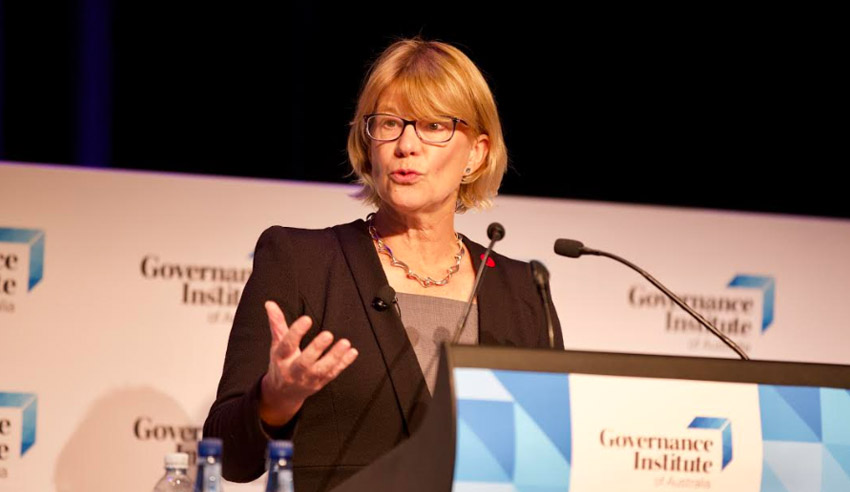When it comes to ensuring that senior management is a well-oiled machine, there are five key themes that must be present.

Speaking last week at the Governance Institute of Australia’s annual conference, Coca-Cola Amatil group managing director Alison Watkins (pictured) said that – despite the differences in all of the companies she has worked for in her career – there are five common themes that emerge when thinking about what makes a well-functioning board and management team.
1. Hyper alignment
Firstly, Ms Watkins identified, there must be “absolute” hyper-alignment between the board and management team.
“Alignment is not only about outcomes, it’s also about routines and processes. Making sure there is explicit consideration, no misunderstandings on how the board will operate and then delivering against this also really helps,” she said.
2. Trust and mutual respect
Next, she continued, the chairman and CEO have to set a tone that emphasises trust and mutual respect.
“Do they like to meet regularly, how long, which issues do they want engage on? How structured or formal do they like to be? How do you make sure this doesn’t backfire? How do you make sure they don’t read bad news in the paper first or if they do they hear quickly from you?” Ms Watkins said
“These are all very important, and many of them practical, questions to be addressed in order to establish the foundation of trust between the chairman and CEO. With this foundation in place it then comes down to trust in each other’s ability to make and execute decisions, and not second-guess.”
3. Being reflective and able to learn
A director who does not fit the mould or play nicely “may provide challenge or activism that shareholders see as a positive”, she warned.
“There is no doubt though that some kinds of feedback for a board collectively and as individuals can benefit.
“Directors like the rest of us have blind spots and creating a climate where feedback is sought, provided and acted upon really helps the social system get into a continuous improvement virtuous cycle. This is partly about formal board review processes, it is much more about informal routines with a tone set by the chairman. A chairman who not only asks and gives director feedback but asks for and gives management feedback.”
4. Ability to handle stress
Fourthly, Ms Watkins highlighted the importance of being able to withstand stressful events.
No company is immune, she said, and the “real test of the strength of the social system” is when faced with adversity.
“I don’t think we prepare our boards and new directors particularly well for the stress events and indeed they are all unique but it should not be unexpected that something will occur. I would observe that directors do need to carry some excess capacity and different time zones can make things very challenging,” she said.
“Simulations such as some boards would do for a takeover situation are very helpful and could perhaps be usefully extended to other scenarios, particularly where disclosure requirements need to be considered.”
5. Understanding the relationship with the community
Finally, she said that a “fundamental relationship in today’s world” for corporations is the one that it has with broader society. This, Ms Watkins proclaimed, is its social contract.
“Being a socially responsible corporate is not tangential to business, but fundamental to it,” she said.
“Acting responsibly as a corporate (just as it does for you and I) generates trust, loyalty and goodwill among customers, employees, business partners, the community, media and regulators. Corporate irresponsibility, on the other hand, can result in disapproval and suspicion, public criticism, damage to customer loyalty, loss of brand equity and a tarnished corporate reputation.”

Jerome Doraisamy is the managing editor of professional services (including Lawyers Weekly, HR Leader, Accountants Daily, and Accounting Times). He is also the author of The Wellness Doctrines book series, an admitted solicitor in New South Wales, and a board director of the Minds Count Foundation.
You can email Jerome at: